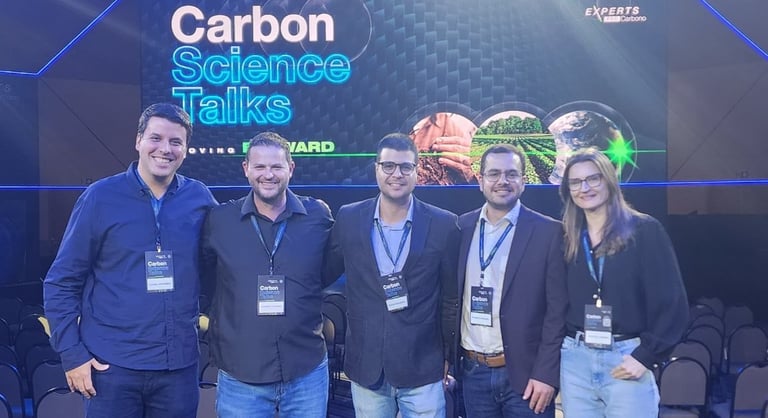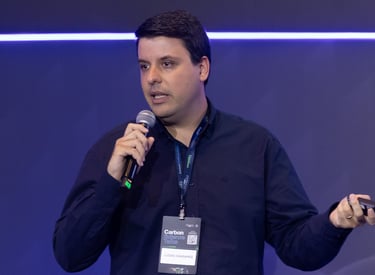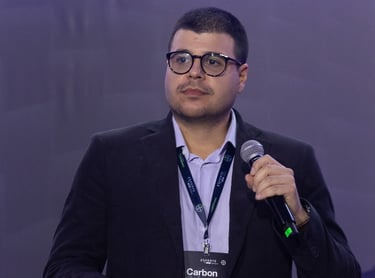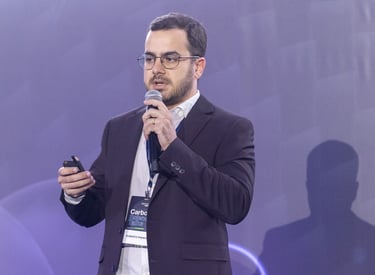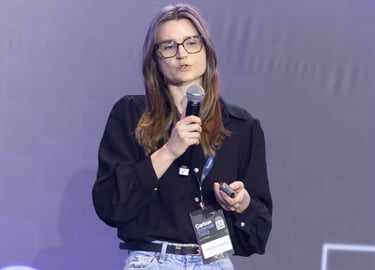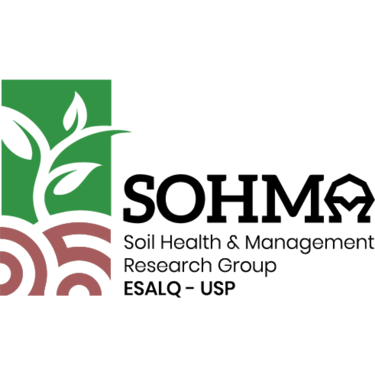Carbon Science Talks
On November 26 and 27, 2024, SOHMA participated in the Carbon Science Talks, in Campinas, São Paulo. The event was organized by Bayer, in partnership with Embrapa, and aimed to consolidate the scientific knowledge accumulated over the last 4 years in practical solutions for farmers and assess the market's readiness for these innovations.
In addition to Prof. Dr. Maurício Roberto Cherubin, 4 other postdoctoral researchers took part in this event.
Postdoctoral researcher Lucas Canisares gave a lecture entitled "Cover Crops: Biomass Contributions and Nutrient Recycling", which highlighted:
Poaceae and Asteraceae presenting greater potential for biomass contribution in relation to Fabaceae and Brassicaceae;
A mix of Fabaceae and Poaceae maintaining high biomass contributions and nutrient recycling.
Another lecture was given by Postdoctoral researcher Lucas Nogueira, entitled "Roots of the Consortium: Management and Production in the Corn-Brachiaria System", where it was highlighted:
In consortium, corn reduces 5% of productivity, while brachiaria reduces 60% of biomass production;
The inclusion of brachiaria intercropped with corn adds approximately 4.4 tons ha⁻¹ of biomass (straw+root) by the end of the corn cycle;
The increase in biomass is equivalent to approximately 0.5 tons ha⁻¹ of carbon in organic matter.
Another SOHMA member who spoke at the event was Postdoctoral researcher Carlos Roberto Pinheiro, with his talk entitled "Carbon Program in Agriculture: The Role of Public-Private Partnerships in Science-Based Initiatives". The main highlights were:
Public-private partnerships: the key to scientific dissemination and boosting regenerative agriculture;
Evaluating soil health at multiple scales: developing metrics for monitoring.
Another presentation was given by Postdoctoral researcher Graciele Angnes, entitled "Regional N2O Emission Factors for Nitrogen Fertilizers - Corn and Sugarcane", where the main highlights were:
The average N2O emission factors for both crops were lower than the standard value of 1.6% proposed by the Intergovernmental Panel on Climate Change (IPCC, 2019);
Variation in emission factors, influenced by the type of nitrogen used and the N application rates;
The importance of developing specific regional emission factors for Brazil is highlighted.
Finally, there was a lecture by Prof. Dr. Maurício Roberto Cherubin, supervisor of the SOHMA group. His presentation was entitled "Healthy soil: Basis for more productive and resilient crops" and highlighted the following:
Investment in conservation management practices, such as the use of cover crops, is crucial to making crops less vulnerable to the climate, i.e., more resilient;
Conservation practices improve soil health, and this, consequently, leads to greater productivity and productive stability (resilience);
"Era of green evolution": regenerative agriculture movement.
